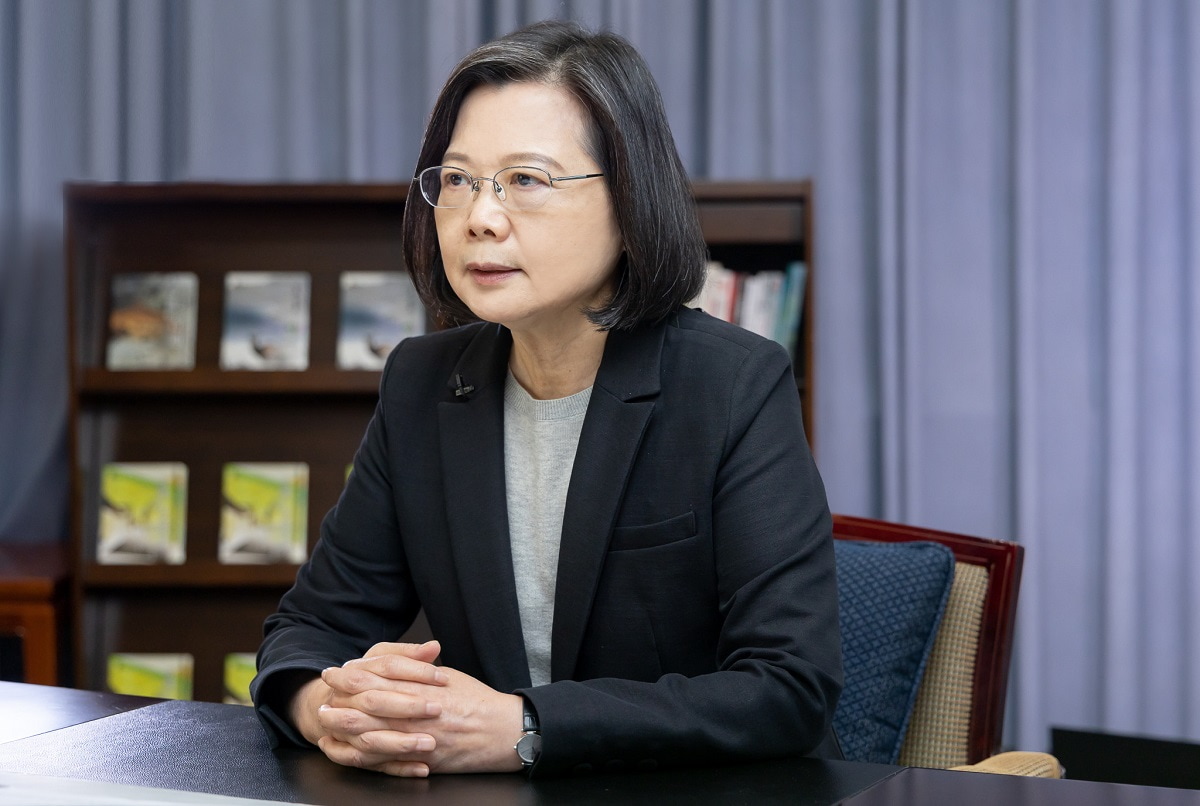In Taiwan, China’s state media and other outlets are increasingly using disinformation alongside more traditional methods to subvert rivals by sowing dissent and influencing politics and public opinion.
To sway voters in the run-up to this year’s Taiwanese presidential election, for example, China is alleged to have deployed intricate disinformation campaigns to undermine the island’s democracy, promote pro-unification narratives, smear the Democratic Progress Party (DPP) candidates, and foment division in US–Taiwan relations. DPP candidate Lai Ching-te was said to have fathered an illegitimate child, and Hsiao Bi-khim, Lai’s running mate, was apparently ineligible to run for office due to her US citizenship.
This followed a similar campaign during the 2020 vote, when China propagated rumours that then president Tsai Ing-wen had faked her doctoral degree, a claim later refuted by the London School of Economics. To discredit Tsai’s victory, sources linked to the Chinese Communist Party claimed that the election results were rigged by the CIA.
The end goal is to undermine public trust in the government and sow doubt within the DPP.
Lai won the election and was inaugurated last month. Still, this came after countless fabricated or exaggerated rumours, articles, and pictures were disseminated through social media and emails to incite anxiety about a cross-Strait war. China has even amped up its disinformation warfare for specific and local settings. Targeted narratives, including those on food safety and racism in Taiwan, aimed to tarnish the DPP’s reputation by associating the party with ethical transgressions and ineptitude.
The end goal is to undermine public trust in the government and sow doubt within the DPP.
However, Taiwan did not sit on its hands. The Taiwanese government banned several Chinese media platforms, including TikTok, iQIYI, and Tencent, while enacting the Anti-Infiltration Act and the Radio and Television Act. Taiwanese non-profit organisations also spearheaded the island’s civil society efforts to debunk misleading news and educate the public about the perils of spreading false information.

The establishment of fact-checking organisations played a central role in this endeavour. Charles Yeh, the creator of MyGoPen, developed the chatbot service after recognising that his relatives were being misled by fake news. Other services, such as the Taiwan FactCheck Center, whose goals are to verify public interest claims and promote transparency, declined government funding in order to maintain their autonomy.
Yet the battle continues. Chinese propaganda still reaches a large audience in Taiwan through unrestricted and widely used platforms such as YouTube and Twitch. In its pursuit of reunification, Beijing will not let up on its efforts to sap Taiwan’s spirit.
The Chinese Communist Party is hostile towards Lai, whom Chinese officials labelled a “separatist” and “troublemaker”. It will continue its efforts to drive wedges between Lai’s government, Taiwan’s populace, and foreign partners.
In May, Lai spoke out against China’s disinformation efforts and vowed to boost defence awareness and fortify national security laws, especially against disinformation. This may lead to stricter regulations on social media. A first step in this direction was the approval of two draft bills by Taiwan’s Executive Yuan on 9 May to strengthen law enforcement against cybercrimes and online fraud. If these drafts are passed, digital platforms earning advertising revenue will be obliged to set up local headquarters or designate legal representatives to handle government inquiries regarding content moderation.
Due to financial constraints, big tech giants such as Meta, X and Google have laid off huge numbers of staff responsible for fighting disinformation.
To investigate the disinformation campaigns to undermine the island’s democracy and security, Taiwan’s Ministry of Justice Investigation Bureau established the Cognitive Warfare Research Centre in January. Yet some officials deem the DPP government responsible for the lack of timely and effective measures against China’s fake news campaigns and cyberattacks. To counter these accusations, the Lai administration will need to develop a “structural approach” under which national agencies could address Beijing’s disinformation offensive.
Due to financial constraints, big tech giants such as Meta, X and Google have laid off huge numbers of staff responsible for fighting disinformation, thus risking the infiltration of fake news by authoritarian states. This means Taiwan must take its own steps. The first of these should be to ensure skilled professionals remain. The self-governed democracy would also be wise to court professionals from the aforementioned mega-tech companies, as their hands-on experience and competence could enhance local organisations’ capacity to counteract disinformation.
Lai has outlined the broad plan to fight China’s disinformation efforts, notably through pledging to collaborate with democracies to “combat disinformation”. But Taiwan needs specific, concrete, and long-term investment. The United States, Japan, South Korea and Australia, along with Taiwan, have all grappled with Chinese disinformation, which makes them natural partners in efforts to combat the tactics. Measures such as establishing policy dialogue forums, in which members share their experiences and strategies for dealing with disinformation, should be prioritised.
With China determined to intimidate Taiwan using a range of disinformation warfare, the big test for Lai Ching-te will be whether his statecraft holds up in the face of fabricated “reality”.

